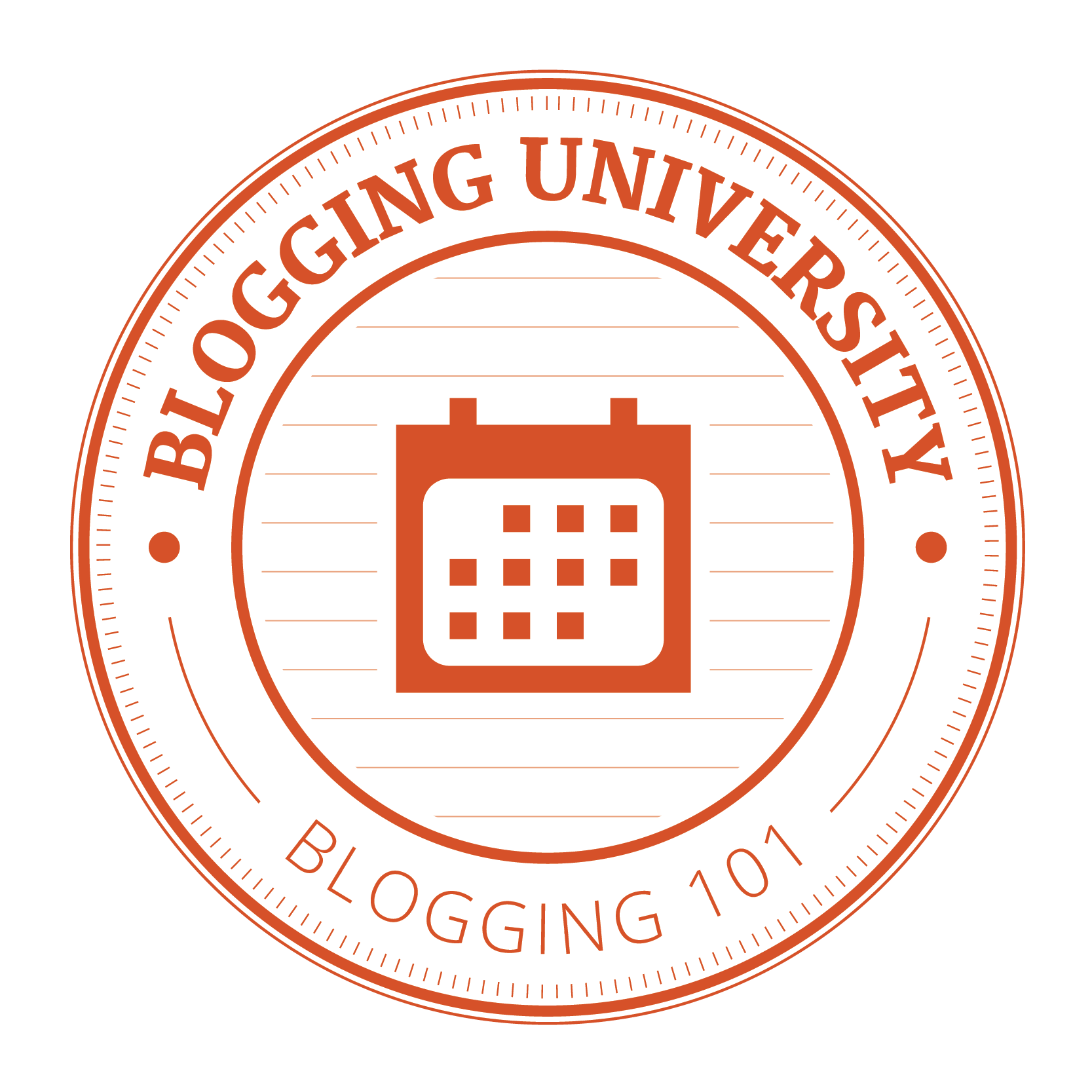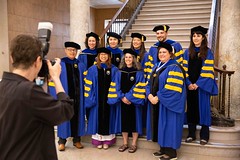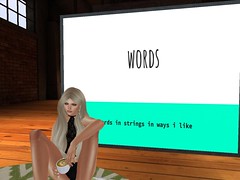What’s a Program Evaluator?
In addition to curriculum design and teacher mentoring, I am also a program evaluator. It did not occur to me that most people don’t know what program evaluators do, until my mother asked me about it. I floundered over my explanation at the time, since I was caught off guard. However, after pondering for a bit, here’s a more elegant (and detailed) answer:
A program evaluator analyzes data collected from a program to see whether or not the program is effective in doing what it is supposed to do.
The evaluator’s data collection and analysis is in the service of answering one very big overarching question:

We then use more specific, detailed questions to outline the actual evaluation itself. These questions will depend on what the program stakeholders want:
- What are the components of the program (activities, processes, people), and how do they work together?
- What components are working well? What components are not working well? Why?
- What is the impact that the program is having on the stakeholders that are involved?
- Is the program fulfilling its mission statement? Why, or why not?
- What evidence can we collect to say that a program is or is not working?
- How can the program be improved?
Of course, it can be more complicated than this, and there are many different program evaluators that are out there; each with their own different styles.
I, personally, take on the role of a critical friend, rather than judge and jury – so in most of the programs that I have evaluated, my analysis and reports are about helping people improve their programs so that they can better serve everyone involved.
It’s a rather gratifying experience, since my job has allowed me to work very closely with people as we plan out the type of data I will collect, what information I can provide to the program in terms of understanding how their programs work, suggestions for how they can best accomplish their goals, and how they can improve. My data analysis has also been used in publications!
Although program evaluation can be an extremely rewarding experience, you do need quite a bit of training. Evaluators should have working background knowledge of the programs that they evaluate (for example, I have an emphasis on STEM education), and they also have special training in evaluation, social research and data analysis. I would also add that they should be a people person – interviewing skills are important for the job!
For more info about program evaluation, start here.
Do you have questions about program evaluation? Similar to education, I can talk on and on about it! What else would you like to know, hmmm?






Yes, you would have to know a lot about what you are evaluating. Not a job I would like maybe if it was about farming it may work for me.
Thanks for sharing, I certainly didn’t know what a program evaluation was, you have explained it well.
LikeLiked by 1 person
You would be surprised! Almost any program that receives federal grant money requires an evaluation (at last, so I’m told). However, a lot of times, evaluators are pulled in at the last minute as an afterthought, so their input isn’t as valuable. When you involved them in the beginning, they can make the program far more effective, because you’re getting data about how the program has developed and working from the get go! But, farm programs, I would imagine, need evaluators, too. To have an evaluator that is an expert in the field that they are evaluating is far more useful than finding say, a “corporate” evaluator!
LikeLike
How did you become interested in this? Thank younfor ecplaining, i had no idea what this was.
LikeLiked by 1 person
I was introduced into program evaluation by the dean at my university! In fact, I started grad school with the agreement that I would work an assistantship in program evaluation and get my certification in it – it was my requirement for tuition waiver! I was really lucky to get it, honestly, because being able to look at things through an evaluation lens has helped me with my own research. I’m always approaching any project with the, “What works, what doesn’t work” kind of mindset.
LikeLiked by 1 person
I hope this doesn’t sound trite, but you must be super smart and focused. I never thought about who, or how, something would be evaluated.
LikeLike
Gosh, Karen, I think program eval has more to do with experience and training, rather than being smart or focused. My faculty advisor would probably agree with me when I say that I’m one of the most scattered brained people you’d ever meet. I can’t even stay on topic in a conversation very easily without being distracted!
Like, I taught for over 11 years, and mentored teachers before they put me into program evaluation. Even then, before I started grad school, I was trained by my company on how to evaluate employees (we cheat and use a rubric, which gives us exactly the standards that we’re looking for, spelled out). So, I draw from all that experience, plus two years worth of program eval training. I was lucky, because my assistantship was really an internship – and I got to work very closely with very experienced evaluators, who taught me about what to look for, and how to measure it.
My classmates who did not go through program evaluation look at things in a very different way? However, maybe it’s more of knowing the questions to ask. Like, researchers may ask very different questions from evaluators! Also, when I talk with the clients, together, we get a sense of what or how things are evaluated. Like for instance, in one program that I’ve worked with, I started the first evaluation by using surveys and faculty interviews – but it didn’t quite get at what they wanted. So, for the subsequent years, we’ve adjusted the program, and now do focus groups (group interviews), which are far more effective for them. Even then, last year, I had to change how we did those group interviews, because it didn’t help us answer some questions that we had just thought of asking. Sooo…. yeah. Every evaluation is different, and something that you work out with the people you are doing the evaluation for. ^.^
LikeLike
Thanks for this insight into a program evaluator and your work. I had never hear of one before so l learnt something new today:) Thanks!! I love that you are a critical friend rather than a judge. I think we could do with more people like you in the world. Have a great day😄
LikeLiked by 1 person
Aww, thank you! It is part of the reason I wanted to shed light on the subject of evaluation – because, I think there’s a lot of people who can become evaluators, and the world can benefit from it! ^.^
LikeLiked by 1 person